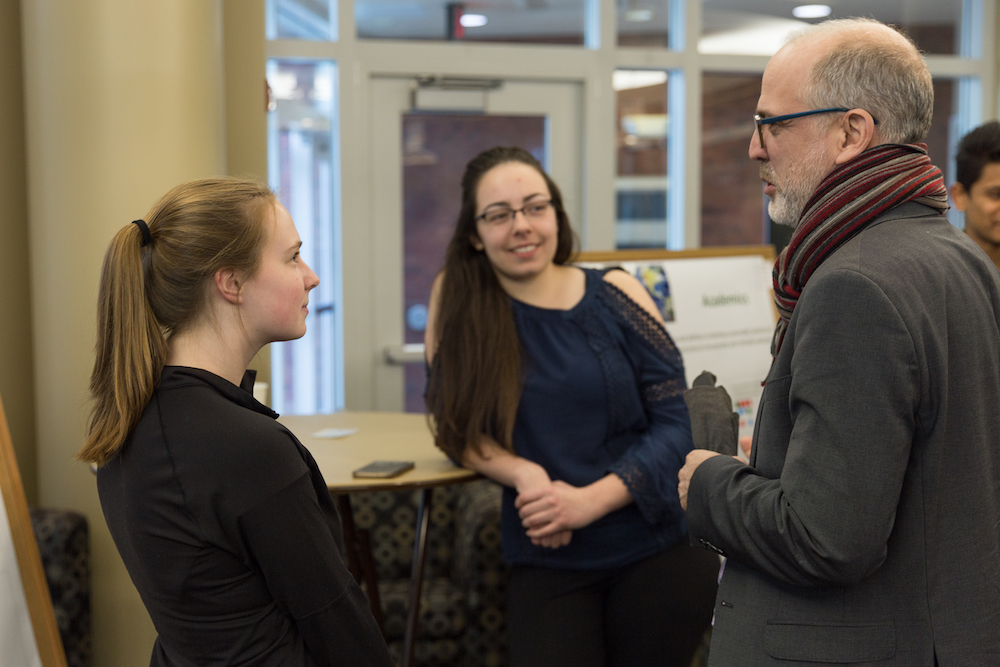

"All scientific and technological problems are embedded in broader sociocultural contexts."
You must understand society to effectively address our global grand challenges. Toward this end, the Social Science & Policy Studies (SSPS) department prepares students to understand human behavior and cognition, the environment, sustainable development, policy design and evaluation, and systems thinking. Through our teaching and student research opportunities, we cultivate professionals who have a deep understanding of the social impacts of science, technology, and innovation.
Our dedicated faculty offers students unique opportunities to make connections between societal concerns and technology through faculty-led research and student projects. To prepare themselves professionally, many of our students will double major in a technical field and a complementary SSPS-related degree. We also offer a variety of minors that can be uniquely paired with any major.
For more information, please visit the SSPS Department homepage.
The following selections are a sample of courses on offer in SSPS. Please contact the department with any questions.
For a complete listing of courses and accompanying descriptions, please click here.

WPI’s Social Science and Policy Studies Department (SSPS) is a team of scholars who are engaged in understanding complex global systems, their diversity and difference, and their ever-changing contexts. We go about our work with passion and quiet optimism in our search for solutions to the many global challenges our societies face. Yet, because many Americans continue to accept racism in its multiple forms, from overt acts of violence, “dog whistle racism”, to racism in its institutionalized forms, it is clear that we must take an active role, not simply being disinterested observers.
For many of us, there is no way to know the anger and anguish caused by decades of barely veiled institutionalized racism. We also cannot fathom a lifetime of suffering from insidious and institutionalized injustice. We acknowledge that many of us have come to our privilege unfairly; we can be who we are without having our identity or intentions questioned because of the color of our skin.
To find our leaders culpable is fair, but they are not the only ones on whom we should cast our critical eye. We must look at ourselves and our society’s institutions. We must also examine our supply chains, our technology, and the way we do science. For example, studies by our colleagues at WPI show that air pollution is endemic in African American neighborhoods, which causes lung conditions, such as asthma. Rates of asthma are higher in urban black Americans than suburban white ones.
Educator Jane Elliott asked a room of white people: would you like to be treated as our black citizens are treated? All present confirmed that they would not like to be treated similarly. She then asks: “why are you willing to accept it for others?” We cannot accept it for others. A recent tweet by Ijeoma Oluo is especially prescient here: “The beauty of anti-racism is that you don't have to pretend to be free of racism to be an anti-racist. Anti-racism is the commitment to fight racism wherever you find it, including in yourself. And it's the only way forward.”
We praise and thank the brave people from all around the world who have rallied against racism.
In SSPS, we commit to be anti-racist. That means standing up for what is right. It means seeking to confront our own biases and deliberately work to reduce them in our scholarship, our teaching, and our engagement with students, colleagues, and anyone we meet. It means hiring more people of color and giving their perspectives a platform, as we have our own, to permeate our courses, programs, and our teaching and learning.
You, our students, too, have a contribution to make toward change. We urge you to find your own voice, your own form of engagement, and to push for change. This could be in your club, your sports team, or even taking cookies to a neighbor. It could also mean political engagement. Call out those elected officials who don’t act swiftly and appropriately to end racism. Work against their reelection. You could work with children on math and science. Model systems and identify stocks of racism and triggers that allow these reserves to flow out into society. Expose bias where it exists and work with friends, colleagues, policy makers – and with SSPS – to create change.
Again, racism has no place in our department. In SSPS, we commit to a review of our programs, policies, practices, and culture to work toward greater inclusivity and to be anti-racist.
--The Social Science and Policy Studies Department Faculty and Staff (click here for PDF)